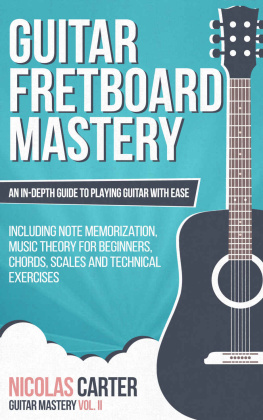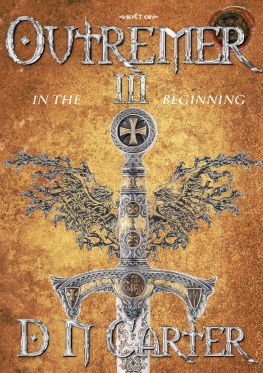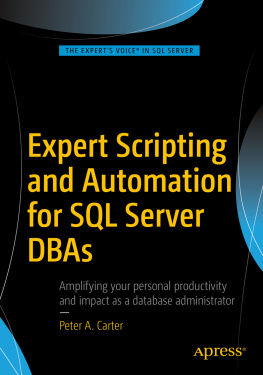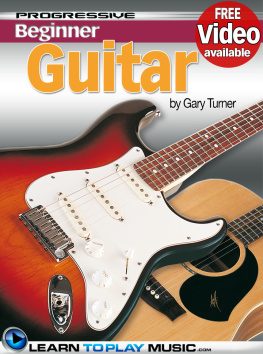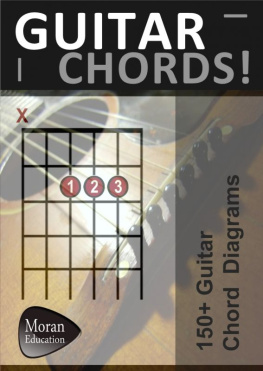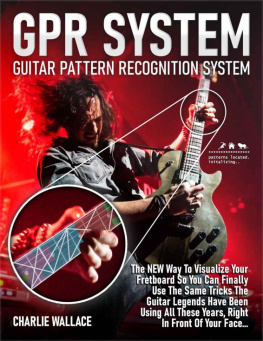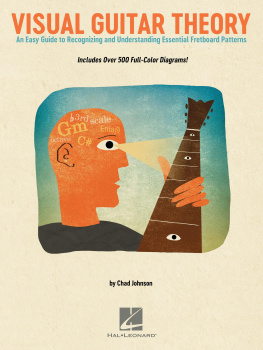This is the first out of many books which will cover different aspects of playing and mastering guitar, such as: learning songs by ear, music theory, rhythm skills, chord construction, CAGED system, etc. Each new book will build upon the last one. This book (Volume 2) continues where the 1st one left off, and covers many different a bit more advanced things, as you'll see.
In each of the books you'll find tremendous value - I'm sharing what I've learned along the way that has helped me learn guitar and enjoy the beauty of playing in all its forms.
http://amzn . to/22fWiSY
You can also subscribe to my email list and be notified when my next book comes out. If you're a subscriber you'll be able to get most of the books for free, and you'll also receive some amazing and valuable content from me.
Introduction
First of all, thank you for reading this book . I wrote it with the intention to share some of the most valuable things I've learned while studying and playing guitar over the years .
The knowledge shared in this book will help you to 'unlock' and demystify the guitar fretboard and achieve more freedom in your playing . You will gain a much better understanding of how guitar works, how music theory is related to guitar and why all this is so much useful . You will be amazed how much this understanding, along with the provided exercises, will benefit your playing .
Let me explain first what do I mean by 'Guitar Fretboard Mastery' .
Although the term mastery is hard to define and can mean different things depending on the context, it is usually regarded as the ability to play almost anything that you want anywhere on the fretboard . The ability to play with ease and use guitar without any technical or knowledge limitations .
To tell you the truth right away, I don't know about anyone who has achieved this level of playing ability, whether on guitar or on some other instrument . You can argue that the musical geniuses like Jimmy Hendrix or Mozzart (not comparing them in any way) were able to play anything that comes from their head anytime they wanted, but that's beside my point .
The point is that learning and playing guitar (or any other instrument) is a process of constant new discoveries . There will always be new stuff to learn and something new to explore . That's the beauty of it!
What I'm trying to say is that you can only get better at playing guitar, but you will never be able to learn everything, which is fine . Fretboard mastery, and therefore guitar mastery, as such, is not some level which is achieved, it's the consequence of the hard work and the constant strive to improve, learn more and become a better player .
In order to get better at playing guitar, there are three aspects to consider:
. Understanding aspect (knowledge),
. Technical aspect
. Musical aspect .
All three are tied together and are more or less equally important .
When you understand the fretboard and how guitar works, how the notes and scales are laid out, how chords come from those scales and how they're constructed - which is what this book is about, you open up more doors for yourself and you achieve more freedom in your playing . You are no longer stuck using only the same old open chords . This is the power of understanding .
Technical aspect follows this closely . What good it is to know all this stuff if you can't use it in real playing because of the lacking technical skills? Having impeccable technique is what allows you to fully express yourself on guitar, and that's why a huge part of this book is dedicated toward developing some crucial aspects of your technique .
Musical aspect is something that is being overlooked by many today, and it's probably the most important . Many people rely too much on their technique while playing and only think in terms of the technique, while instead they should just free up their minds and play from their heart, like a true musician would . This includes the rhythm skills as well .
Being a better musician doesn't require you to have any special talent . Please don't have have this limiting self-belief! This is what hinders the progress of most players.
"Whatever the mind can conceive and believe, the mind can achieve . "
This is one of my favorite quotes by Napoleon Hill, and I found it in so many ways to be true . You can become a better musician through developing your ear, your rhythm skills and listening and figuring stuff out .
Developing your musicianship skills is not the focal point of this book, but it is covered a bit nonetheless . Also, check out the bonus section . ;)
In order to better explain the process of mastering guitar fretboard, this book is divided into 5 parts . Part 1 is all about learning and memorizing every note on a fingerboard in an easy and progressive manner .
You need to get to know your instrument . This is the first step toward fretboard mastery - you have to be able to name any note anywhere on a guitar fingerboard almost instantly (like piano players would) . In the next 2 parts you will have a better idea of why is this so much important .
Since this process is going to take some time, I do recommend that you don't wait until you've memorized every note to move on to Part 2 , but rather go through the entire book first, and then continue on with learning the note positions at the same time while working on what's being taught in other parts .
Part 2 is all about mastering the Major scale . It's the most important scale you'll have to know . Almost all music that you hear today comes from this scale . In this part you will learn what is a scale, what's a major scale, a root note, how chords and scales get their names, and what is a key . You will also learn how to play in all 5 positions of the Major scale and connect them all across the fingerboard .

